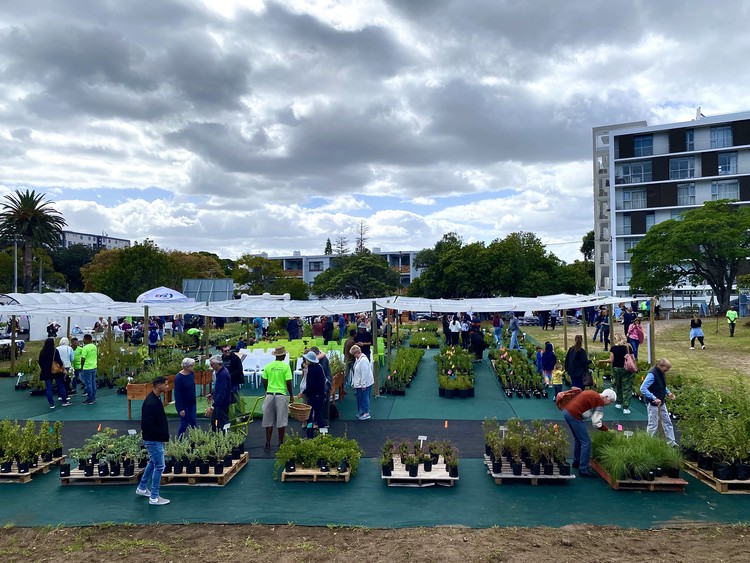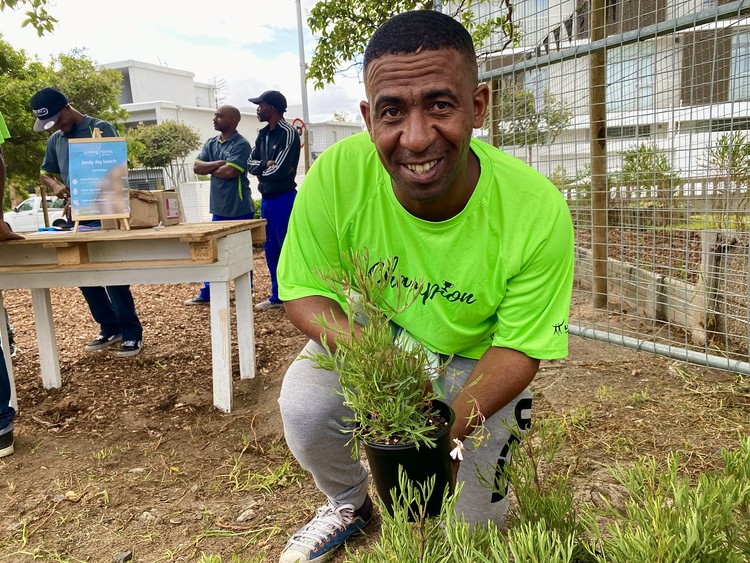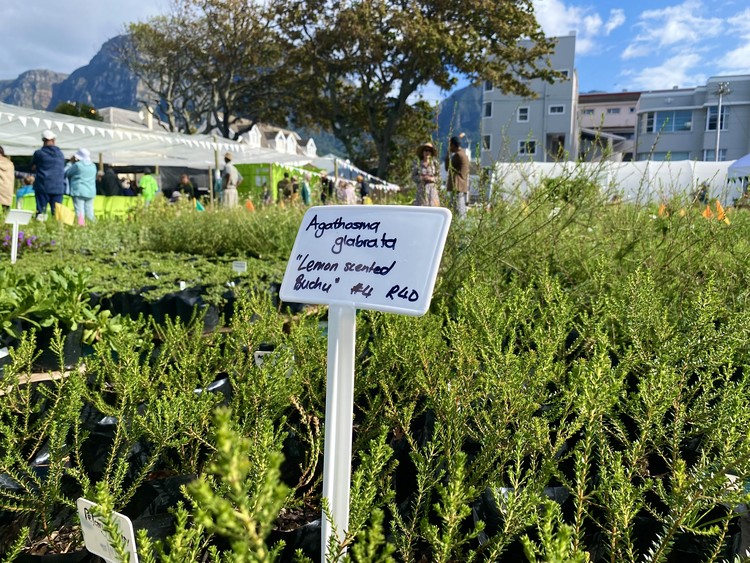Indigenous plant nursery run by homeless people brings new life to vacant land in Claremont
Ten formerly homeless people have been employed by the project through the U-turn Homeless Service Centre
Scores of people came to the launch of the Living Roots SA indigenous plant nursery in Claremont on Monday. The project is run by people who are homeless. Photos: Matthew Hirsch
- The Living Roots SA Plant Nursery was launched in Claremont, Cape Town by the U-turn Homeless Service Centre on Monday.
- The nursery, which stocks indigenous plants, is run by formerly homeless people.
- Part of the project is being funded by the Jobs Fund — a multi-year R9-billion National Treasury initiative established in 2011 to encourage innovation and support initiatives like this.
A once derelict piece of land between an apartment complex and a tennis club in Claremont, Cape Town, has been turned into a nursery for indigenous plants run by formerly homeless people.
The Living Roots SA Plant Nursery was launched by non-profit organisation U-turn Homeless Service Centre on Monday. Part of the project is funded by the Jobs Fund, a multi-year R9-billion National Treasury initiative established in 2011 to encourage innovation and support initiatives like this. The plants on sale have been grown by the workers at the nursery and some plants by an offsite grower.
The nursery is situated on land previously used by the bowling club, but which has been vacant for years now. The land is owned by the Claremont Beneficiary Trust.
“I was living on the streets for two months. It was cold and wet. I was grieving my father’s passing. I was vulnerable and lonely,” says Mark Jaftha, who works at the nursery. Jaftha, who struggled with substance abuse, said he has been sober for more than a year since he started working with U-turn.
Originally from Westlake, he now stays in a Retreat night shelter. “I’m encouraging people out there that there is life after homelessness. Look at me, I’m fat and looking good. I’ve got support back from my family and they respect me now,” he said.
At the launch, U-turn CEO Jean-Ray Knighton Fitt said that getting people who are homeless back onto their feet often takes years. “We work with people from the time they are destitute on the streets, all the way until they have found healing, independent employment, and long-term housing, and restored broken relationships.
Knighton Fitt said people who wanted to leave the streets could go through a rehabilitation process with U-Turn and then enter a work readiness programme. “We call them champions because they’ve already overcome seemingly insurmountable odds.”
Mark Jaftha, one of the workers at the nursery, says he has been able to turn his life around since he started working with U-turn more than a year ago.
Julia September, manager at Living Roots, said they started the nursery project six months ago. When clearing the land, they collected 200 bags filled with litter.
“I drove past this plot for years and saw it derelict.” She said the nursery would offer workshops to the public on indigenous plants.
Ward Councillor Mikhail Manuel said, “Turning this into a community nursery is a really good example of what can be done in the rest of the city.”
The landowners, the Claremont Beneficiary Trust, acquired the land as part of an official land restitution claim, and have welcomed the nursery on part of the land. Treasurer Yusuf Mowlana said the Trust represents more than 60 families who had been forcefully removed under the Group Areas Act and acquired the land in 2017 as part of a restitution claim.
He said the land had been vacant since the Covid pandemic. He said the work U-Turn was doing was “absolutely fantastic”. “We are really happy to be associated with them on this property.”
Mowlana said that the Trust hopes to retain parts of the nursery when it develops the land in the future.
The nursery is open Mondays to Fridays from 9am to 4pm.
Some of the indigenous buchu plants on sale at the nursery.
Support independent journalism
Donate using Payfast

Don't miss out on the latest news
We respect your privacy, and promise we won't spam you.
Next: Apartheid labour tenants wait their whole lives for land rights - but there are signs of hope
Previous: Helen Suzman Foundation slams Home Affairs’ decision to terminate ZEP system
© 2023 GroundUp. This article is licensed under a Creative Commons Attribution-NoDerivatives 4.0 International License.
You may republish this article, so long as you credit the authors and GroundUp, and do not change the text. Please include a link back to the original article.
We put an invisible pixel in the article so that we can count traffic to republishers. All analytics tools are solely on our servers. We do not give our logs to any third party. Logs are deleted after two weeks. We do not use any IP address identifying information except to count regional traffic. We are solely interested in counting hits, not tracking users. If you republish, please do not delete the invisible pixel.



